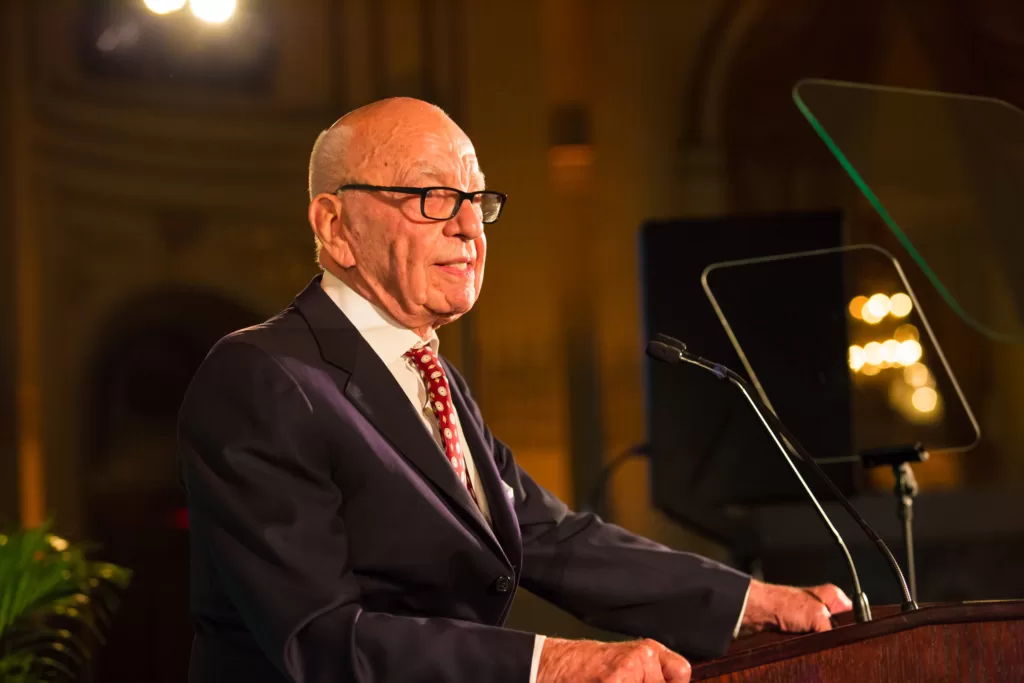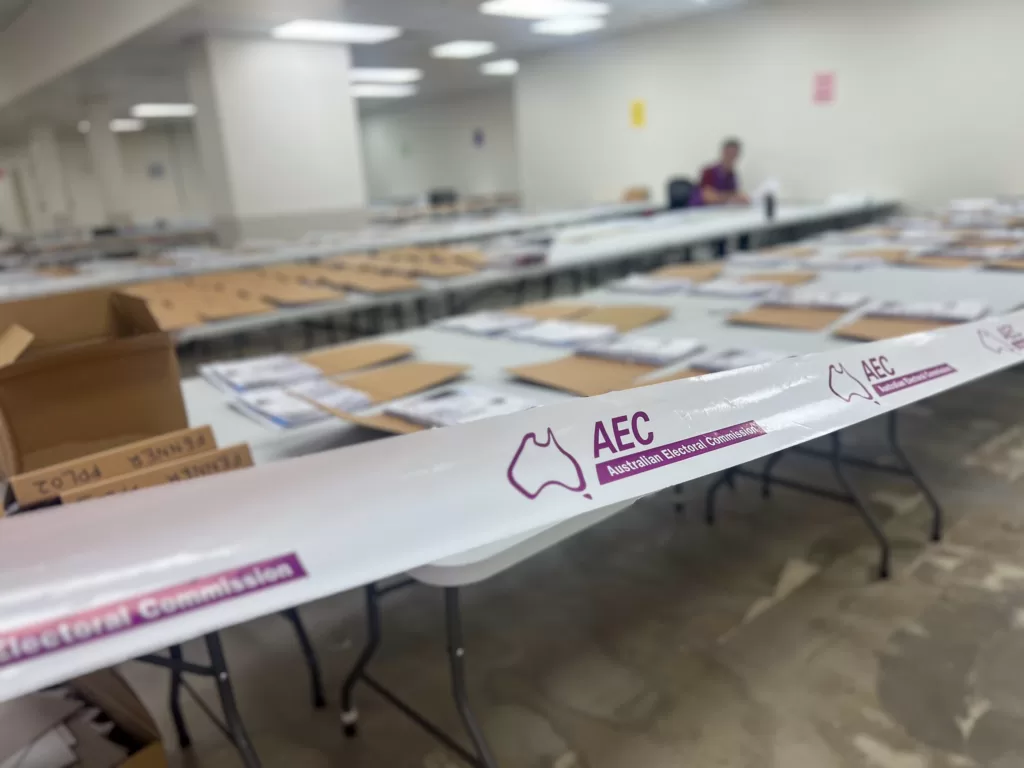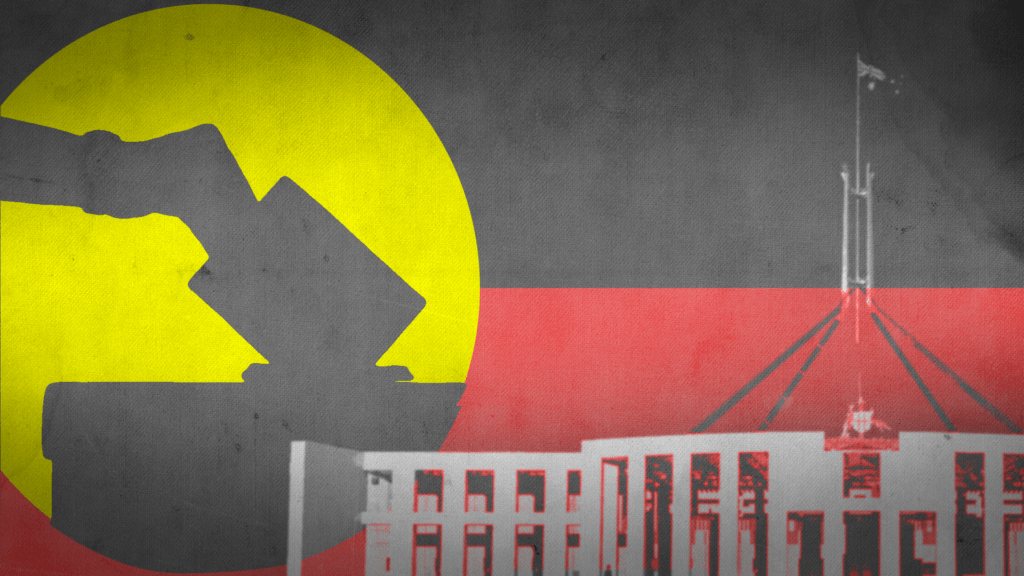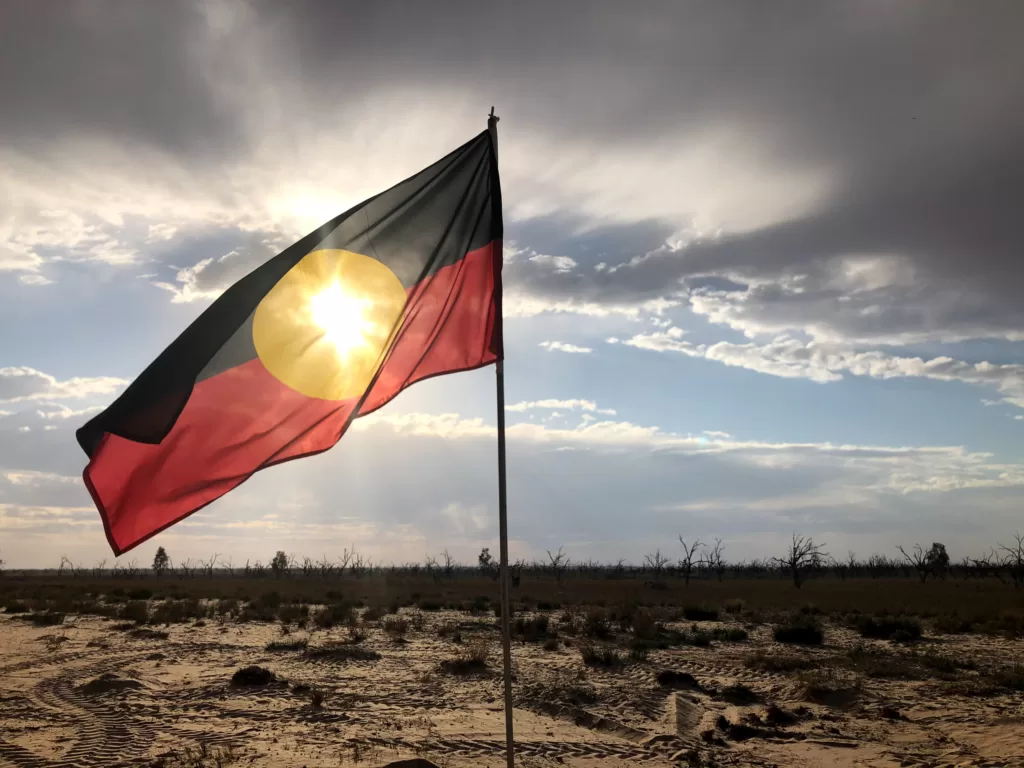Has News Corp’s one-way Voice commentary swayed the vote?
Australia's Voice referendum debate has been a mess, with one powerful media company a big factor. So why haven't its rivals held it to account?
 Rupert Murdoch is stepping away from News Corp, but the media empire is staying in the family. : Rick Gilbert, Hudson Institute, Flickr CC BY 2.0
Rupert Murdoch is stepping away from News Corp, but the media empire is staying in the family. : Rick Gilbert, Hudson Institute, Flickr CC BY 2.0
Australia’s Voice referendum debate has been a mess, with one powerful media company a big factor. So why haven’t its rivals held it to account?
As Rupert Murdoch hands over the reins of his News Corp empire, his eldest son Lachlan takes control of the largest media player in Australia, dominating one of the planet’s most concentrated media markets.
News Corp has wielded its power over Australian politics like no other media company — accused of swinging elections and deposing prime ministers.
And, as Australia prepares to vote in its first referendum since 1999, News Corp appears to be pressing its thumb to the scale.
Australia’s Indigenous Voice referendum on 14 October will decide if the country’s constitution recognises First Nations people and enshrines an advisory body — a body allowed to give advice to parliament about policies affecting First Nations people.
The lead-up to the vote over adding 92 new words to Australia’s foundational document was a test of the country’s democratic institutions and capacity to hold healthy, mature and respectful public debate.
It hasn’t been that sort of debate.
Australia is yet to vote, but hopes for robust referendum debate has already been soured: coverage of the campaign has been awash with misinformation, scaremongering and racially charged discourse.
Social media often shoulders much of the blame for muddying the public sphere with hate and misinformation, but Australia’s mainstream news media also failed to deliver accurate, quality information about the referendum.
Instead, the media have collectively let hostile and politically motivated ‘No’ campaigners promote false information without accountability.
Some news media appear to have become campaigners themselves. The Murdoch Referendum Accountability project (of which I am lead researcher) has found most News Corp commentators and some journalists have actively sided with the No campaign.
News Corp voices are confusing the public’s understanding of referendum questions, potentially scaring voters away from voting ‘Yes’. The research project, funded by an advocacy group, Australians for a Murdoch Royal Commission, calls for a more diverse and accountable Australian media.
Australia has one of the most concentrated media landscapes in the Western world. Two companies own 80 percent of the readership in metropolitan and print media markets. News Corp — owned by the Australian-born mogul Murdoch and his offspring — is the largest player, owning 59 percent.
With this power, News Corp holds significant importance in its coverage of the Voice referendum. This potentially has serious implications for Australian democracy.
The research has monitored News Corp’s coverage of the referendum question across national newspaper The Australian, tabloid newspapers The Daily Telegraph in Sydney and Herald Sun in Melbourne and national cable television and YouTube-based broadcast channel, Sky News Australia.
In the first six weeks of analysis, between 17 July and 27 August 2023, 70 percent of the words used to argue Yes or No in the referendum were arguing for the negative.
Although reporters — covering the facts around the referendum — presented both arguments evenly, commentators included No arguments in 88 percent of analysed content.
The amount of commentary in these News Corp publications is also far greater than that classified as reporting.
Commentary in this period contributes an estimated 130,000 words of No arguments, compared with 39,000 words that take on far more balance from reporters.
The vast majority of the No arguments among the commentary is from News Corp commentators themselves, actively campaigning for the ‘No’ side of the referendum and attacking ‘Yes’ supporters.
A 2021 study of Fox News, owned by the same parent company as Sky News Australia, found Fox News audiences failed to distinguish between commentary and news. Further blurring the lines between fact and opinion is the popularity of commentary hosts, who are more popular on Fox News than news hosts.
The study found no fact-checking or balanced sources within Fox News’ commentary content.
News Corp’s extensive commentary on the Voice referendum more closely resembles a political campaign than mere news reporting or a diverse presentation of opinions.
It echoes an accusation levelled in 2018 by former Prime Minister Kevin Rudd, founding chair of the Australians For Murdoch Royal Commission.
Rudd said News Corp “is not a news organisation, it is a political party” — claiming he received harsher coverage than John Howard, his predecessor from the opposing Liberal Party.
Malcolm Turnbull, a former prime minister from Howard’s party, indirectly agreed with Rudd in 2020, saying News Corp is “like a political party” that works “closely with right-wing politicians to influence policy and elections”. Turnbull is co-chair of the Australians For Murdoch Royal Commission.
Any one-sidedness privileging the ‘No’ campaign by News Corp makes it harder for the public to access diverse views. But this is only part of the problem.
News Corp’s commentary against the Voice is littered with opinion and narratives promoting fearmongering, misrepresentations and misinformation, which undermines the public’s understanding of the referendum.
Sky News Australia presenter Peta Credlin, the former chief of staff for conservative prime minister Tony Abbott, claimed the Uluru Statement from the Heart is not a 440-word one-page document but actually 26 pages.
The statement, developed through consultation with Indigenous communities over many years, has been used by the ‘Yes’ campaign to lay out the case for constitutional recognition and an enshrined Voice.
Credlin’s claim centred around “plenty of stuff in there about treaties, compensation and a whole lot of stuff that they’re not being upfront about.”
University-affiliated fact-checkers debunked the claim on the national broadcaster’s website.
Another News Corp personality, Andrew Bolt, misrepresents the Voice as an “Aboriginal only parliament”.
Bolt said the Voice “completely changes the nature of democracy” because if “three percent of the [Aboriginal] people say no, they can stop the other 97”. The Voice is only an advisory body, which has no power to make laws or veto parliamentary decisions.
Due to a lack of media accountability from regulators or other media outlets, Bolt is able to distort the public’s understanding, unchecked.
One of the key reasons Bolt and other News Corp voices are able to sidestep scrutiny of their media content is that they present themselves as commentators merely voicing opinions.
Bolt has claimed the Voice would give Aboriginal people special privileges and that it is “racist”. Previously, Bolt has suggested that some Aboriginal people are pretending to be Indigenous to claim special privileges, saying that nearly ‘a third’ of people claiming to be Aboriginal are not.
Competitors appear unwilling to criticise or report on News Corp as potential political campaigners, giving them free reign to negatively interfere in public debate. The ABC’s Media Watch defended Credlin’s claims about the length of the Uluru Statement, saying “there may be some point” to what Credlin was saying.
Australians rely on quality news media to hold power to account, but news media itself is mostly unaccountable. News Corp doesn’t seem to be doing its part in facilitating healthy public debate, despite its prominence and power.
In studying its output, it appears the largest private media company in Australia is directing its considerable influence and power towards a ‘No’ outcome and undermining the public’s accurate knowledge of the referendum to do so.
A healthy democracy relies on its media to present accurate and diverse information so that voters can fairly make up their own minds. When the media fails to do this, democracy is undermined.
There are considerable concerns over the increasingly political role the Murdoch family-led News Corp’s Australian entities play in the nation’s discourse.
Until these concerns are addressed, considered and analysed by something with the powers of a royal commission, the corrosive nature of media driven political campaigning is likely to corrode the foundations of our democracy.
Dr Victoria Fielding is a Lecturer in Strategic Communication at The University of Adelaide. Victoria studies media representation of political contestation and the influence of media on democracy.
Victoria leads a team of three researchers from the University of Adelaide on the Murdoch Referendum Accountability Project, funded by Australians for a Murdoch Royal Commission. You can read the project’s interim report here.
Originally published under Creative Commons by 360info™.












